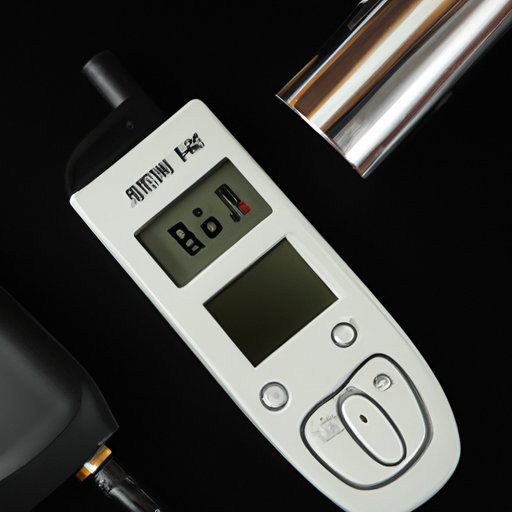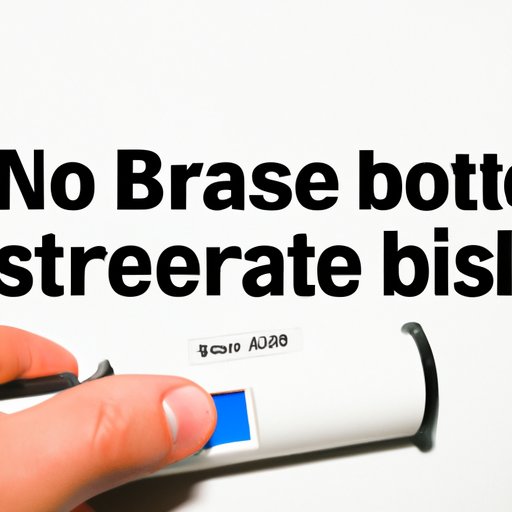
Introduction
Drunk driving is a serious offense that claims thousands of lives each year. To keep our roads safe, law enforcement agencies are empowered to use various methods to detect and prevent drunk driving, including sobriety tests and breathalyzer tests. While refusing a breathalyzer test may seem like a good idea to some, it’s important to understand the legal and ethical consequences of such a decision. In this article, we will explore the topic of refusing a breathalyzer in detail and provide information to help you make an informed decision if you face this situation.
The Legal Consequences of Refusing a Breathalyzer Test: An Overview
In all US states, driving is considered a privilege rather than a right. This means that drivers are expected to agree to certain conditions in exchange for the right to use the road. One of these conditions is known as implied consent. Generally, when you obtain your driver’s license, you are consenting to a sobriety test, as well as a breathalyzer if suspected of driving under the influence. Refusal to participate in this test is in violation of implied consent and carries legal repercussions.
Some states have taken measures to increase the penalties for refusal of a breathalyzer. In these states, a refusal may result in immediate license suspension and even steeper fines. In some cases, refusing a breathalyzer can even lead to criminal charges, depending on state law and the specific circumstances of the case.
5 Factors to Consider Before Refusing a Breathalyzer Test
While refusing a breathalyzer test may seem like a good idea at the time, it’s important to weigh your options carefully before making this decision. To help you make an informed decision, here are five key factors to consider:
1. Your Physical Condition
Even if you haven’t been drinking, you may still encounter difficulties when taking a breathalyzer test. Physical conditions like asthma, acid reflux, and even certain diets can lead to inaccurate breathalyzer results. Consider how these factors may influence the accuracy of the test and your decision to refuse.
2. The Circumstances of Your Stop
If you are stopped by the police, consider the circumstances of the stop. Did the officer have reasonable suspicion to pull you over? Was there probable cause for a breathalyzer test? If you believe that the stop or the tests were not done correctly, you may be able to challenge the charges in court.
3. The Penalties for Refusal
Before refusing a breathalyzer test, it’s important to understand the penalties in your state. This can include immediate license suspension, increased fines, and even criminal charges. Be sure to weigh these consequences against the potential consequences of a positive breathalyzer result.
4. Your Prior Record
Depending on your prior record, refusing a breathalyzer test could have more severe consequences. This could be especially true if you have a previous DUI conviction or if license restrictions are already in place.
5. Your Personal Ethics
Finally, it’s important to consider the ethical implications of refusing a breathalyzer test. While the law does not require you to incriminate yourself, refusing may also make it more difficult for police to prosecute other drivers who engage in drunk driving. It is also important to consider the safety of others on the road.
The Ethics of Refusing a Breathalyzer Test: Weighing Your Options
Refusing a breathalyzer test raises important ethical considerations. On the one hand, it’s important to protect your legal rights and avoid self-incrimination. On the other hand, it’s also important to keep our roads safe and prevent drunk driving. If you do decide to refuse a breathalyzer test, be sure to consider both sides of this important issue.
From Arrest to Trial: Understanding the Consequences of Refusing a Breathalyzer Test
When you refuse a breathalyzer test, the police will likely arrest you and take you to the station. Once there, you will be given two options – take the test or refuse. If you refuse, you will be charged with violating implied consent laws and the legal proceedings will begin.
An arrest for drunk driving can have serious consequences, including jail time, heavy fines, and a criminal record. If you are facing these charges, it’s important to speak to an experienced criminal defense attorney who can help you navigate the system and achieve a favorable outcome.

How to Refuse a Breathalyzer Test Without Incriminating Yourself
If you do decide to refuse a breathalyzer test, it’s important to do so in a way that does not incriminate yourself. Be polite and clear in your refusal, but do not try to argue with or resist the police officer. Remain calm and remember that anything you say can be used against you in court.
If you do find yourself in this situation, it’s recommended that you seek the advice of a qualified DUI lawyer who can advise you on how to proceed and protect your rights.
Your Rights When it Comes to Refusing a Breathalyzer Test: What You Need to Know
While the law does require you to take a breathalyzer test in most US states, you do have certain rights related to this test. For example, you have the right to refuse to take the test, but you will also face legal consequences for doing so. You also have the right to an independent chemical test by a qualified professional, and to an attorney during questioning.
It’s important to exercise these rights responsibly and with the guidance of an experienced criminal defense attorney. With the right support, you can protect your legal rights and make informed decisions about how to handle your case.
Conclusion
In summary, refusing a breathalyzer test is a serious decision that requires careful consideration of the legal and ethical implications. While you do have the right to refuse, it’s important to be aware of the potential legal and financial consequences of doing so. By weighing your options carefully and seeking the guidance of an experienced criminal defense attorney, you can make informed decisions about how to handle a DUI charge and protect your legal rights.




